Published: january 4, 2010; Intelligence and Terrorism Information Center.
Also read Further Evidence of Hezbollah’s Military Activity which violates UN Security Council resolution 1701, endangering the civilian population and UNIFIL forces operating in the area.
The political platform of the new Lebanese government reflects an attempt to find common ground between the political factions. It also demonstrates the limitations of Prime Minister Saad Hariri and his supporters in dealing with Hezbollah, which has reinforced its internal Lebanese legitimacy.
The issue of Hezbollah’s weapons
Overview
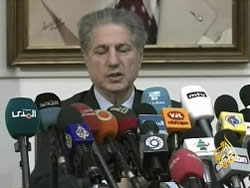
Amin Gemayel voices dissatisfaction with “the new Lebanese government giving (Hezbollah) legitimacy to bear arms” (Al-Jazeera, December 11, 2009)1
1. After three days of intensive discussions (December 8-10) on the political platform of the new Lebanese government headed by Saad Hariri, the government won the trust vote of the Lebanese parliament (December 10), which approved its political platform by an overwhelming majority of 122 out of the total 124.
2. The task of formulating the political platform was handled by a commission of 12 ministers headed by the elected prime minister Saad Hariri. The formulation of the political platform took about two weeks of intensive work due to the differences of opinion which arose during the discussions. The main bone of contention was the issue of the weapons of “resistance”. Specifically, the issue pertains to the legitimacy of the considerable arsenal held by Hezbollah, which poses a threat not only to Israel but also to the various sources of power in Lebanon, putting Hezbollah in a position of power over the Lebanese regime as well. The issue has been brought up by Hezbollah’s opponents (the March 14 Alliance) on several occasions in recent years. Due to its weakness, the opposing alliance has been forced into a political compromise which practically (if not formally) accepts the reality on the ground shaped by Hezbollah with the assistance of Iran and Syria.
3. The political platform of the government, which was ultimately approved by the parliament, is not much different than that of the previous government, headed by Fouad Seniora. It touches upon a variety of political, security-related, diplomatic, and internal Lebanese issues. The political platform reflects the various factions’ desire to reach common ground on one hand, and to draw red lines on the other. However, some issues still remain controversial and are unlikely to be bridged by political compromise for long, specifically the weapons of Hezbollah and the implementation of UN Security Council Resolution 1701. Those issues may once again rise to the top of the political agenda during the new government’s tenure.

The elected prime minister Saad Hariri giving a speech in the Lebanese parliament after winning the trust vote. According to Hariri, the new government is one of “national agreement” (Al-Jazeera, December 11, 2009)
Characteristics of the new government’s political platform
1. Following are the characteristics of the key issues in the new government’s platform:
- The status of the “resistance” (i.e., Hezbollah): the compromise achieved on that key issue gives the “resistance” (i.e., Hezbollah) the right to act alongside the Lebanese army (that is, as an equal) to protect Lebanon and to “liberate Lebanese land” (similarly to the political platform of the outgoing government). The attempt of the March 14 Alliance to emphasize that Hezbollah is subjected to the state failed, and they had to settle for stressing the “exclusive” authority of the state to determine its policy and expressing an “active” commitment to the Arab peace initiative. It is the second time since the second Lebanon war that Hezbollah and its weapons are given an explicit political recognition as a force that is on equal footing with the Lebanese army, which may act to advance Lebanon’s national rights.
- Lebanon’s sovereignty and concept of defense: according to the platform, the state is the sole authority on determining its policy, protecting Lebanon, and defending its sovereignty (in the view of the March 14 Alliance, that clause limits Hezbollah’s power). Expressed in that context are Lebanon’s desire and “right” to regain control of the Shebaa Farms, the Kfar Shouba hills, and the Lebanese part of the village of Ghajar. The platform also states that Lebanon should be protected from any attack and that the country’s right to its territorial water must be upheld using the legitimate means it has available.
- Lebanon’s commitment to the implementation of Security Council Resolution 1701: the government emphasizes its commitment to Resolution 1701, including all of its clauses, and stresses the demand addressed to the international community to implement the resolution and put an end to the so-called Israeli violations of it. Lebanon is even likely to use its representation in the Security Council to achieve that goal. However, the Security Council resolution contradicts the internal Lebanese recognition of the military infrastructure created by Hezbollah; accordingly, it can be expected that the Lebanese government will continue avoiding practical cooperation with UNIFIL against Hezbollah (so that this part of the platform can be seen as lip service by the Lebanese government).
- The international tribunal on the Hariri assassination: the political platform reflects a clear willingness to cooperate with the special tribunal (under a clause in Security Council Resolution 1757) to reveal the truth behind the murder of Prime Minister Rafiq Hariri. That is a significant issue, given the possibility that the results of the investigation and the indictments will be published during the government’s tenure. It may cause difficulties inside Lebanon if it is found that Hezbollah or Syria were responsible for the murder. In practice, however, it has already been shown that Syria and Hezbollah have ways and means to interfere with or disrupt any significant cooperation with the international tribunal, so that this issue may also remain on paper only.
- Relations with Syria: the Lebanese government expects that the relations between the two countries will improve on the basis of trust, equality, and respect for the sovereignty and independence of each country (the previous subdued wording of “ideal relations” was dropped). Demands have been brought up to address such issues as monitoring and marking the Syrian-Lebanese border, and the issue of the Lebanese MIAs in Syria. However, in practice, Syria will continue to enjoy a position of power on the internal Lebanese scene and meddle in Lebanon’s internal affairs, as it has for the past several decades.
- Economy: maintaining the economic principles outlined by the March 14 Alliance, including the reforms of the Paris-3 Convention,2 maintaining a budgetary framework, addressing core issues, and working for the reduction of social inequality. It appears that economy is a major issue on the agenda of the new government, even though its economic goals are outlined fairly vaguely. Nevertheless, the Lebanese government is well aware that the reestablishment of Hezbollah’s military infrastructure and the possibility of its future use may potentially compromise the Lebanese economy (as was the case in the past).
Summary and assessment
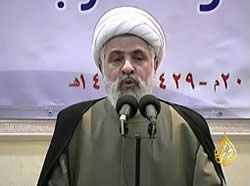
Hezbollah Vice Chairman Sheikh Na’im Qassem: “The meaning (of the new government’s political platform) is that the "resistance" is an inseparable part of this government” (Al-Jazeera, December 11, 2009)
1. The political platform of the government reflects the desire shared by all of Lebanon’s political powers (including Hezbollah) for internal stability and, consequently, their readiness to compromise, at least when it comes to formulating the political platform. It also reflects the acceptance of Hezbollah’s military and political power, and the recognition of the need for reconciliation with Syria. As it currently stands, the platform authorizes Hezbollah to act as an influential military and political power in Lebanon, maintaining Hezbollah’s status as the dominant power in the struggle against Israel and even giving it more wiggle room on the national issue of defense strategy.
2. The political platform continues the policy of the outgoing government, reflecting the inability of Saad Hariri and the March 14 Alliance to leverage their victory in the elections for strengthening the opposition to Hezbollah, Iran, and Syria. The March 14 Alliance succeeded in influencing the formulation of the platform and keeping the issues it views as significant (the international tribunal on the Hariri assassination and the implementation of Resolution 1701). Those issues, however, are expected to remain on paper due to Hezbollah’s strength and the internal Lebanese legitimacy it has been given.
3. Also noteworthy is the rapprochement between Hariri and Syria, reflected in the prime minister’s recent visit to Damascus following the trust vote which his new government won. Hariri’s visit to Damascus is an expression of his pragmatic approach, acknowledging the need to be attentive to the interests of Syria and its allies in Lebanon (in political and internal contexts). Be that as it may, the hostility of Saad Hariri and the alliance he represents towards Syria has not changed, and his desire to maintain his independence and weaken Hezbollah remains unchanged.
Notes:
1 In a speech given by Hezbollah leader Hassan Nasrallah on the occasion of Ashura, he mocked the criticism made by the Kataeb Party (the Phalange Party), as expressed by Amin Gemayel, of the clause dealing with the weapons of the “resistance” in the government’s political platform (Al-Manar TV, December 25).
2 The Paris-3 Convention was held on January 25, 2007. It was attended by representatives from 40 countries and 14 international organizations. The convention’s discussions pertained to funding the rebuilding of Lebanon.
Mazzeltov,
Crethi Plethi



 RSS
RSS


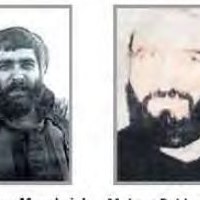
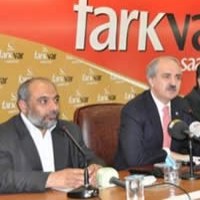
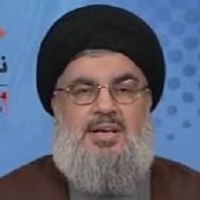
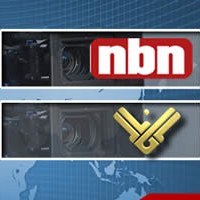




[…] resolution 1701, endangering the civilian population and UNIFIL forces operating in the area. Read More »google_ad_client = "pub-3667441628576694"; google_alternate_color = "FFFFFF"; google_ad_width = 728; […]
[…] as long as Hezbollah continues to play a major role in Israels ‘northern neighbors’ politics and […]
[…] as long as Hezbollah continues to play a major role in Israel’s northern neighbor’s politics and […]